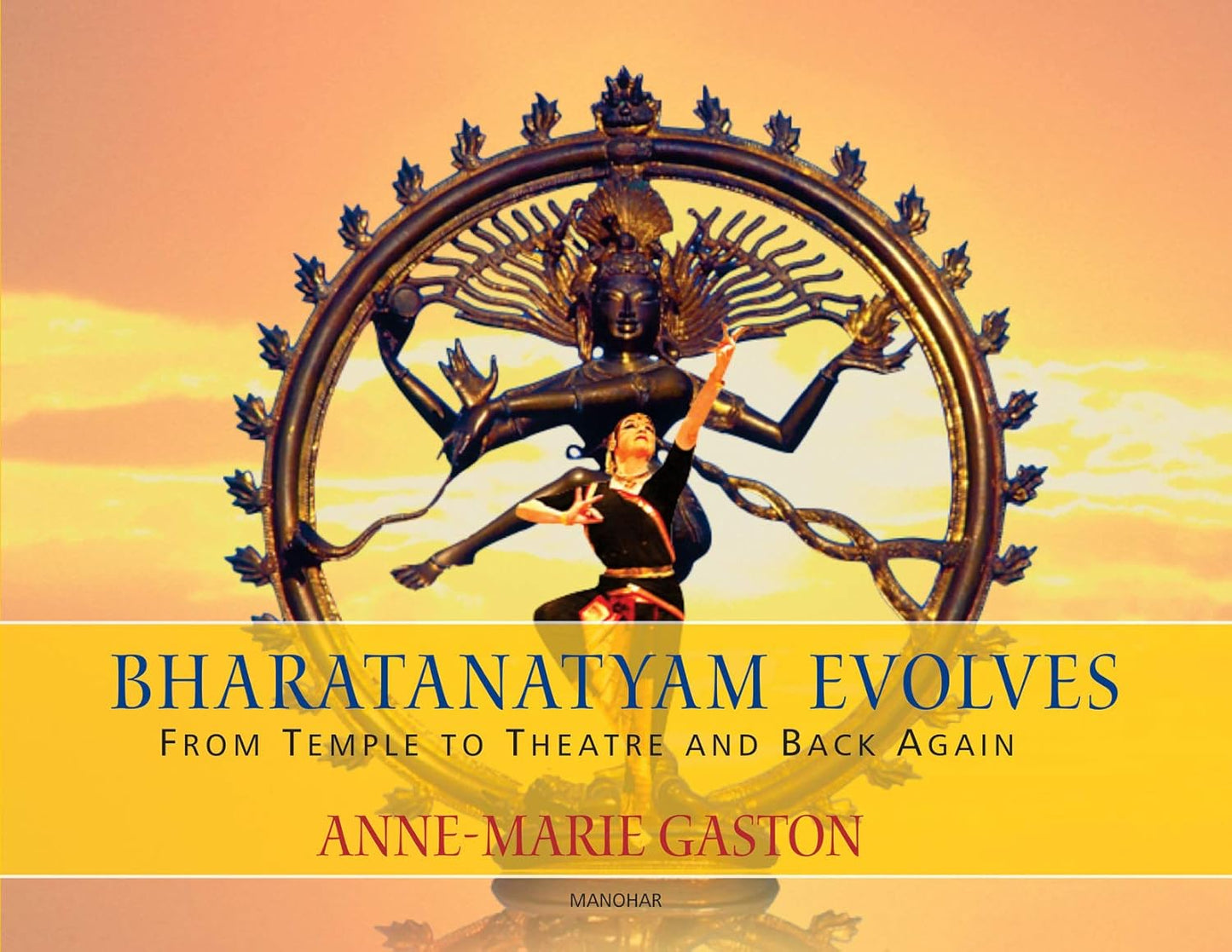BHARATANATYAM EVOLVES: FROM TEMPLE TO THEATRE AND BACK AGAIN
BHARATANATYAM EVOLVES: FROM TEMPLE TO THEATRE AND BACK AGAIN
Couldn't load pickup availability
Bharatanatyam is currently one of the most popular Indian classical dance styles, performed throughout India and the world. It originated in southern India, where it was taught by males and performed by female Devadasis, both of whom belonged to the same caste. Traditionally, the dance was associated with Hindu temples and courts and was performed in a variety of sacred and secular settings. Since the early twentieth century, both practitioners of and venues for the dance have expanded. It is now taught and performed globally by people from all castes and nationalities, including teachers and dancers of all genders and religions. Most performances are now public events presented on the concert stage. Anne-Marie Gaston, traces the development of Bharatanatyam from its religious and secular roots. She gives details of the teachers who were most influential in the transmission of the dance from traditional to modern practitioners and discusses the role of different interpretations (banis).
Share

